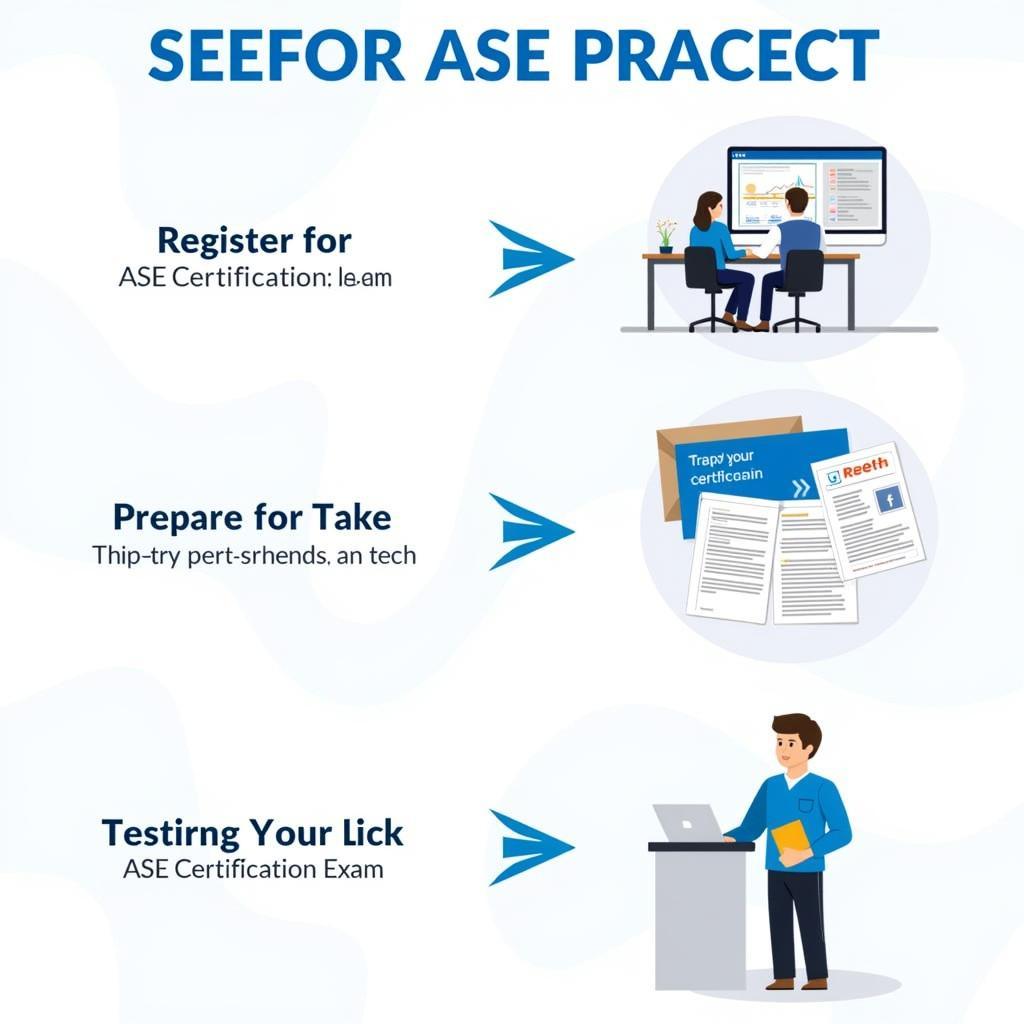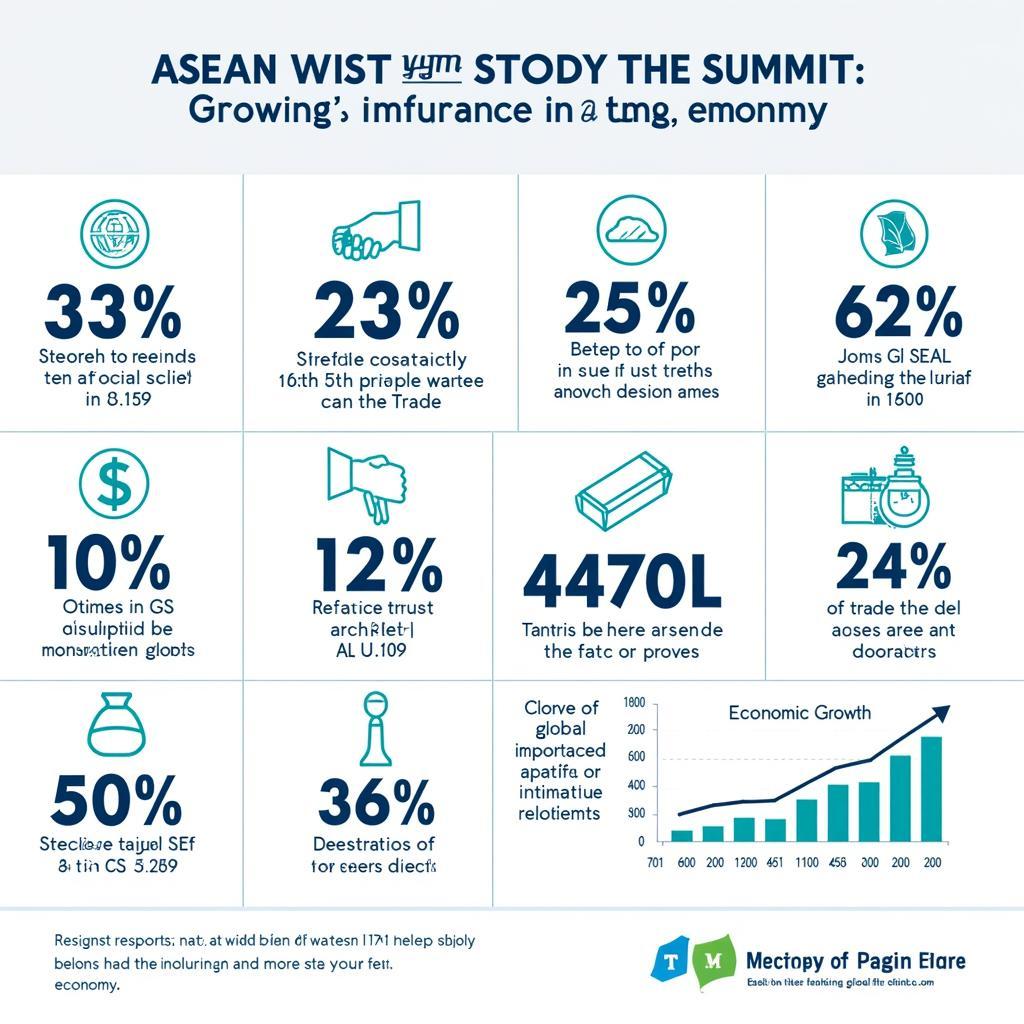The ASEAN 5-Point Consensus, adopted in April 2021, represents a crucial diplomatic effort to address the ongoing crisis in Myanmar. It outlines a five-step plan aimed at restoring peace and stability to the nation following the military coup. This framework, born out of regional concern and international pressure, calls for an immediate cessation of violence, constructive dialogue among all parties, the appointment of a special envoy, humanitarian assistance, and the envoy’s visit to Myanmar to meet with all stakeholders.
Decoding the 5-Point Consensus: A Roadmap for Peace
The 5-Point Consensus, far from being a mere declaration, provides a concrete roadmap towards resolving the Myanmar crisis. Each point addresses a critical aspect of the conflict, emphasizing ASEAN’s commitment to a peaceful and inclusive resolution. This comprehensive approach underscores the gravity of the situation and the urgent need for collaborative action.
The first point, the immediate cessation of violence, is paramount. Without a commitment to peace, any further dialogue or negotiation becomes futile. This emphasis on non-violence underscores the humanitarian implications of the conflict and ASEAN’s concern for the well-being of the Myanmar people. The subsequent call for constructive dialogue among all parties recognizes the complex political landscape and the need for inclusive participation. No single group can dictate the future of Myanmar; a lasting solution requires engaging all stakeholders.
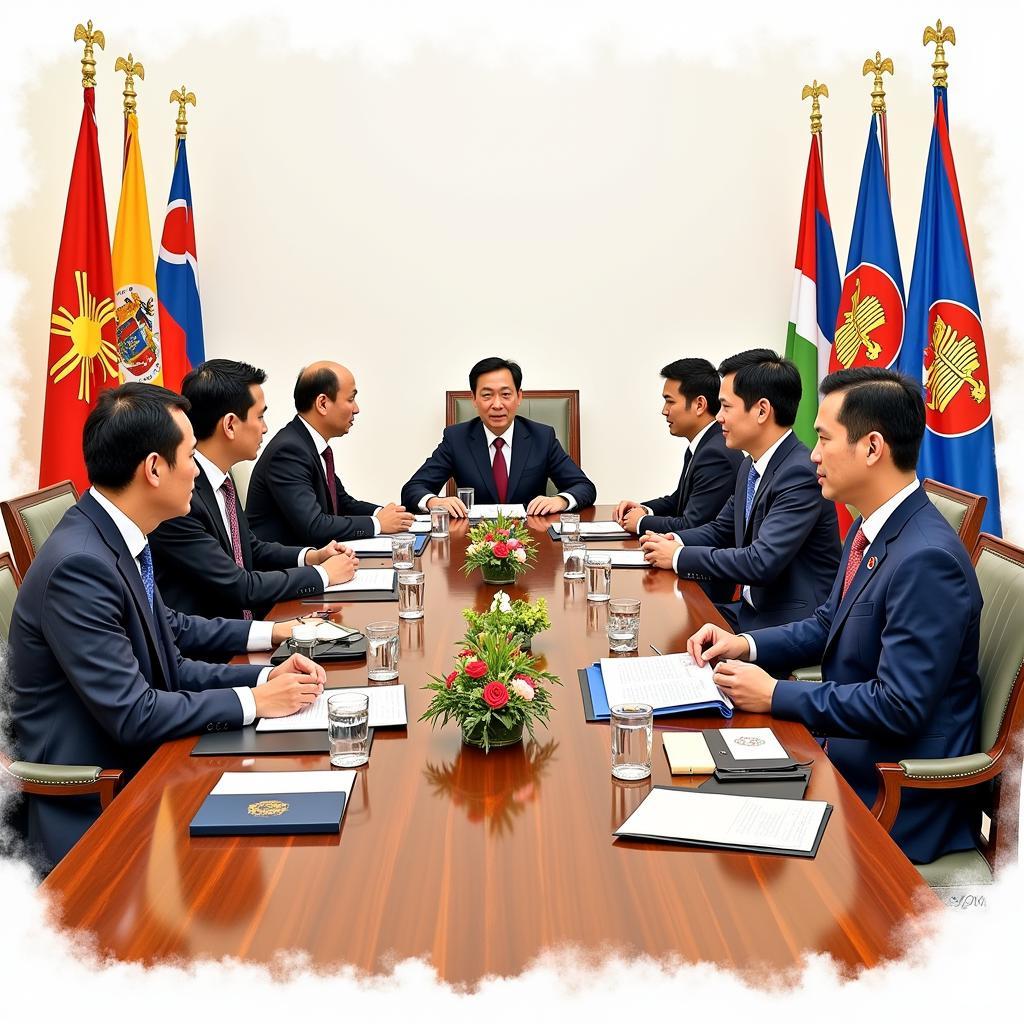 ASEAN 5-Point Consensus Meeting
ASEAN 5-Point Consensus Meeting
The appointment of a special envoy, as outlined in the third point, designates a neutral party to facilitate mediation and communication between the conflicting factions. This role is crucial in bridging divides and fostering an environment conducive to dialogue. The fourth point, regarding humanitarian assistance, acknowledges the dire humanitarian situation within Myanmar. The provision of aid is not merely an act of charity but a necessary step in alleviating suffering and creating space for political progress. Finally, the envoy’s visit to Myanmar provides a crucial opportunity for on-the-ground assessment, direct engagement with all parties, and the collection of firsthand information necessary for effective mediation.
Challenges and Implementation of the ASEAN 5-Point Consensus
While the ASEAN 5-Point Consensus represents a significant diplomatic undertaking, its implementation has faced considerable challenges. The ongoing violence and political instability within Myanmar have hindered progress, creating a volatile environment that complicates efforts towards dialogue and reconciliation. The complexities of the internal political landscape, coupled with external pressures, pose a significant obstacle to implementing the consensus. One key challenge lies in gaining the trust and cooperation of all stakeholders. The military junta’s reluctance to fully engage with the ASEAN envoy and adhere to the agreed-upon framework has been a major impediment. Furthermore, the fragmented nature of the opposition, with various groups holding different objectives and agendas, adds another layer of complexity.
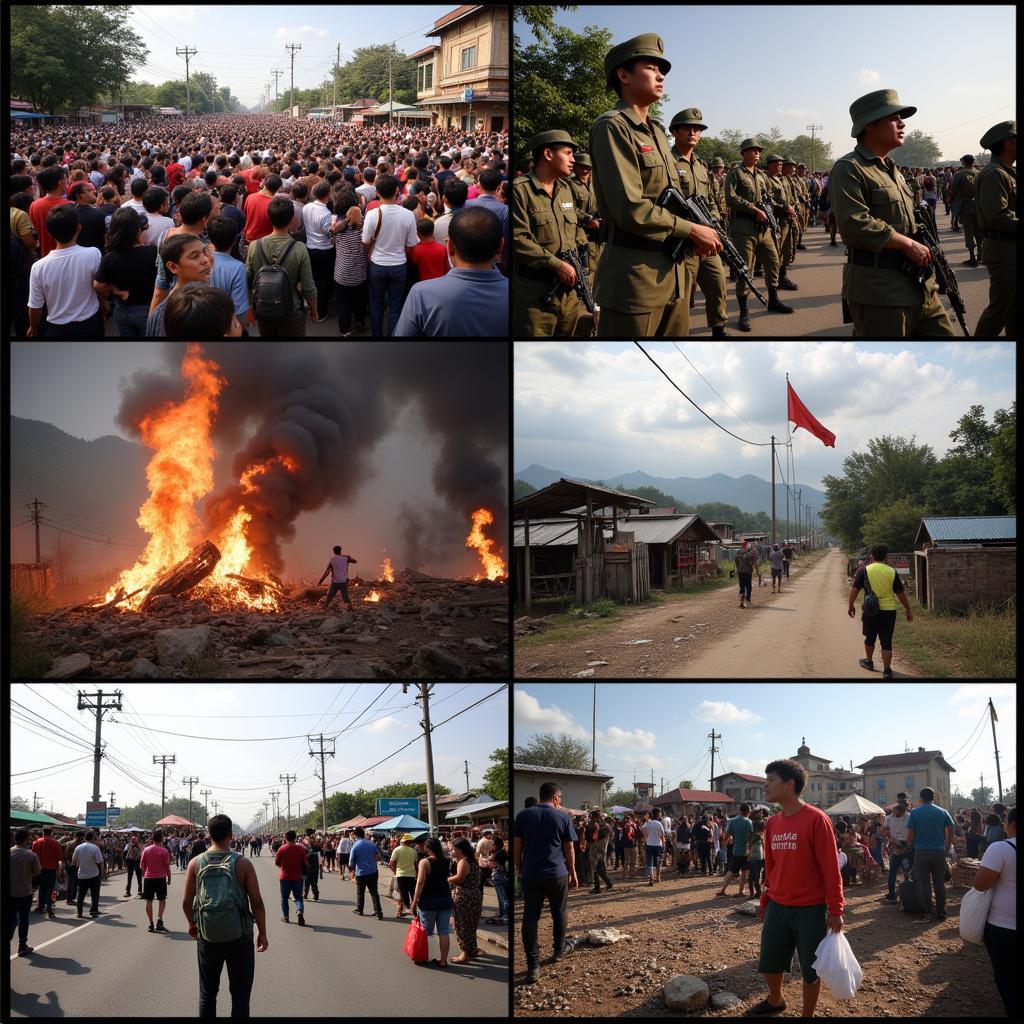 Challenges in Myanmar Post-Coup
Challenges in Myanmar Post-Coup
Furthermore, ensuring the safe and unimpeded delivery of humanitarian assistance presents a logistical and security challenge. Accessing conflict-affected areas often requires navigating complex negotiations and ensuring the safety of aid workers. The international community plays a vital role in supporting ASEAN’s efforts. Coordinated international pressure, targeted sanctions against those obstructing the peace process, and continued humanitarian aid are essential for achieving a positive outcome. A unified and consistent message from the global community can strengthen ASEAN’s leverage and encourage all parties in Myanmar to work towards a peaceful resolution.
The Future of the 5-Point Consensus and Myanmar
The ASEAN 5-Point Consensus remains a vital framework for achieving peace and stability in Myanmar. Its continued relevance lies in its comprehensive approach, addressing both the immediate need for an end to violence and the long-term goal of inclusive dialogue. While the path to peace is fraught with challenges, the consensus provides a crucial starting point for navigating the complex political terrain. See more on asean 5-point consensus myanmar and myanmar asean.
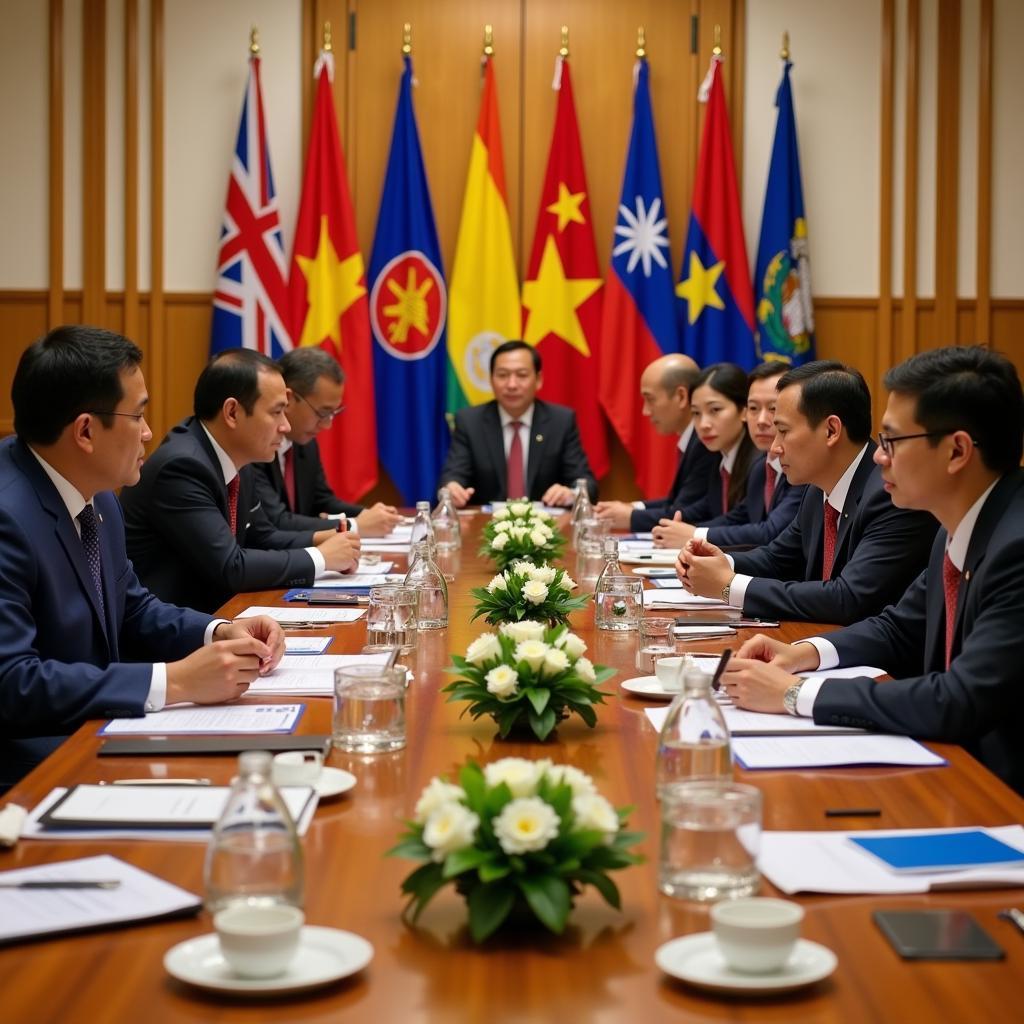 ASEAN Diplomatic Efforts in Myanmar
ASEAN Diplomatic Efforts in Myanmar
“The ASEAN 5-Point Consensus is not merely a document but a commitment to the people of Myanmar. It is a testament to ASEAN’s unwavering pursuit of peace and stability in the region,” states Dr. Aung San Suu Kyi, a prominent political figure in Myanmar.
“The international community must stand in solidarity with ASEAN and the people of Myanmar. A coordinated and sustained effort is crucial for achieving a peaceful and democratic future for the nation,” adds Kofi Annan, former Secretary-General of the United Nations.
The ASEAN 5-Point Consensus remains a critical framework for addressing the crisis in Myanmar. While implementation faces ongoing challenges, its principles of peace, dialogue, and humanitarian assistance offer a pathway towards a more stable and inclusive future. Continued regional and international efforts are essential for achieving a sustainable resolution and ensuring the well-being of the Myanmar people. You may want to also read about asean 5-point consensus myanmar and ase group spil. Learn more about ASEAN Secretariat by visiting alamat sekretariat jenderal asean.
FAQ
- What is the ASEAN 5-Point Consensus? (A five-point plan aimed at resolving the crisis in Myanmar.)
- When was the consensus adopted? (April 2021)
- What are the key points of the consensus? (Cessation of violence, dialogue, special envoy, humanitarian aid, envoy’s visit.)
- What are the main challenges in implementing the consensus? (Ongoing violence, military’s non-cooperation, fragmented opposition.)
- Why is the consensus important? (Provides a framework for peace and stability in Myanmar.)
- What is the role of the international community? (Supporting ASEAN’s efforts through coordinated pressure and aid.)
- What is the future of the consensus? (Remains a vital framework but requires sustained effort for successful implementation.)
For support, contact us at Phone: 0369020373, Email: aseanmediadirectory@gmail.com, or visit our address: Thon Ngoc Lien, Hiep Hoa, Bac Giang, Vietnam. Our customer service team is available 24/7.

